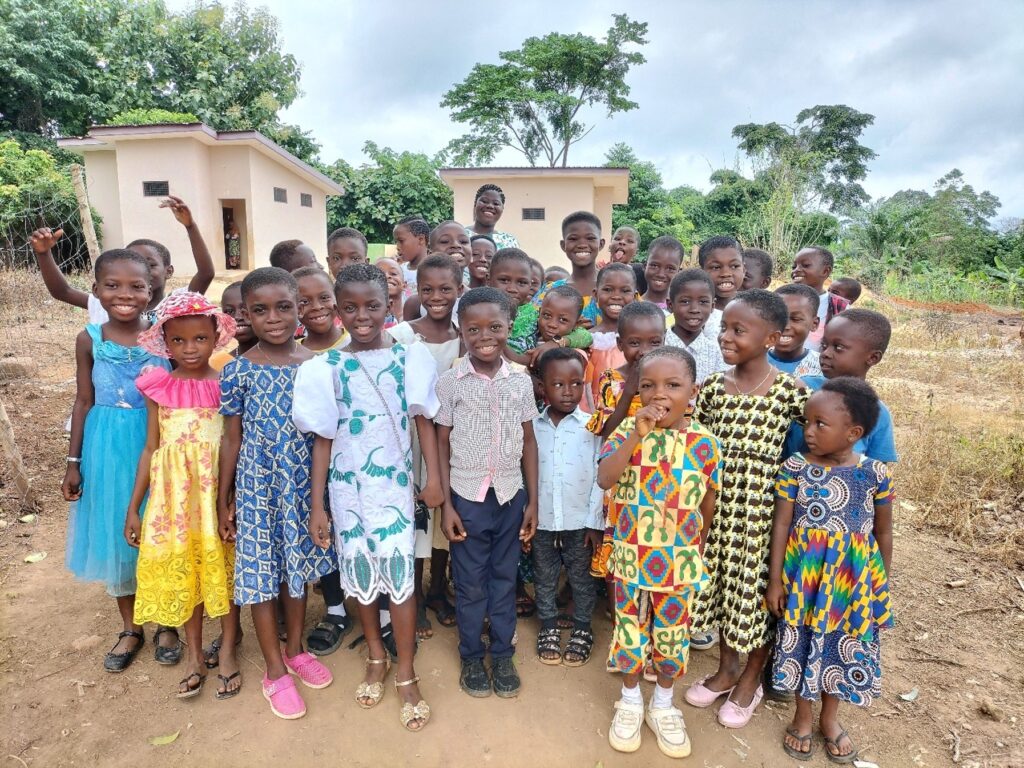
Students at the St Joseph School in Domeabra, Ghana where technology for a new toilet facility is promoting climate action as well as clean, safe sanitation.
Photo: Sisters of Saint Joseph of Cluny
In Ghana, biogas toilet facilities are a new technology in schools and are very new in the district location of Domeabra, home to the St Joseph Primary School. The need for a new toilet facility, and the desire to contribute to the climate change agenda of the government of Ghana, led the school to embark on the construction of a biogas toilet facility.
As a farming community surrounded forest lands, it is common practice in Domeabra to cut down trees for firewood, exportation and burning of charcoal in the nearby urban communities. Seeing an opportunity in this as part of their toilet reconstruction project, the St Joseph School decided to aim at the same time for the 100% reduction in firewood at the school.
To do this, the school decided to make optimal use of the benefits of a biogas digester as a source of fuel for its school kitchen. A brand new kitchen facility was constructed to be compatible with the biodigester system.
In partnership with the Sisters of St Joseph of Cluny, who sought funding for the project from Misean Cara, the school is also engaging in outreach and education to the local community and stakeholders on climate change and climate change technologies, encouraging proactive involvement in climate action through the use of energy saving stoves.
Many benefits to the community and to the surrounding local environment in Domeabra have emerged as a result of installing the new toilet facility, the biodigester and the kitchen facility:
• The project has prevented the possible leaching from the old toilet facility into one of the main sources of water in the village during the dry season.
• It serves pupils and teachers as well as neighbouring schools during inter-school sports and academic competitions such as quiz and debates.
- The sight of the new toilet facility itself creates continuous awareness of a technology that can reduce the cutting down of trees and preserve the ecosystem.
• With the support of Misean Cara, the school is harvesting the biogas and has a kitchen to facilitate its use.
• The reduced use of firewood as a kitchen fuel in the school means that children bring firewood once a week and not twice (previously all school families contributed firewood to the school kitchen twice a week). We hope that good production of the gas as time goes by will enable the school to depend totally on the gas.
• Over 400 pupils and teachers are educated on the technology and climate change.
• Raised awareness in the Domeabra community and its surrounding villages, PTA and community leaders about the benefits of the biodigester and alternative fuels for cooking.
• 200 households are now using energy-saving stoves, a sign of their commitment to reduce their use of firewood and to participate in the climate change agenda.
• The two projects collaborated with the local District where the school is located, through the involvement of the district education office and the Environmental Protection Agency office in the climate change and technologies education
• Children and households using the energy-saving stove are now ambassadors of climate change message
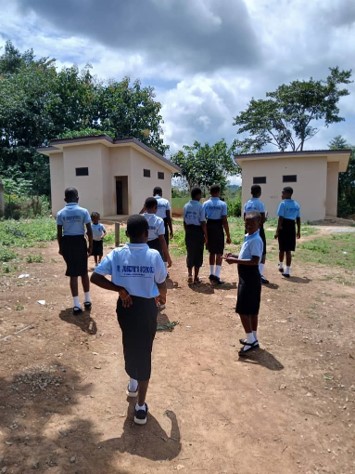
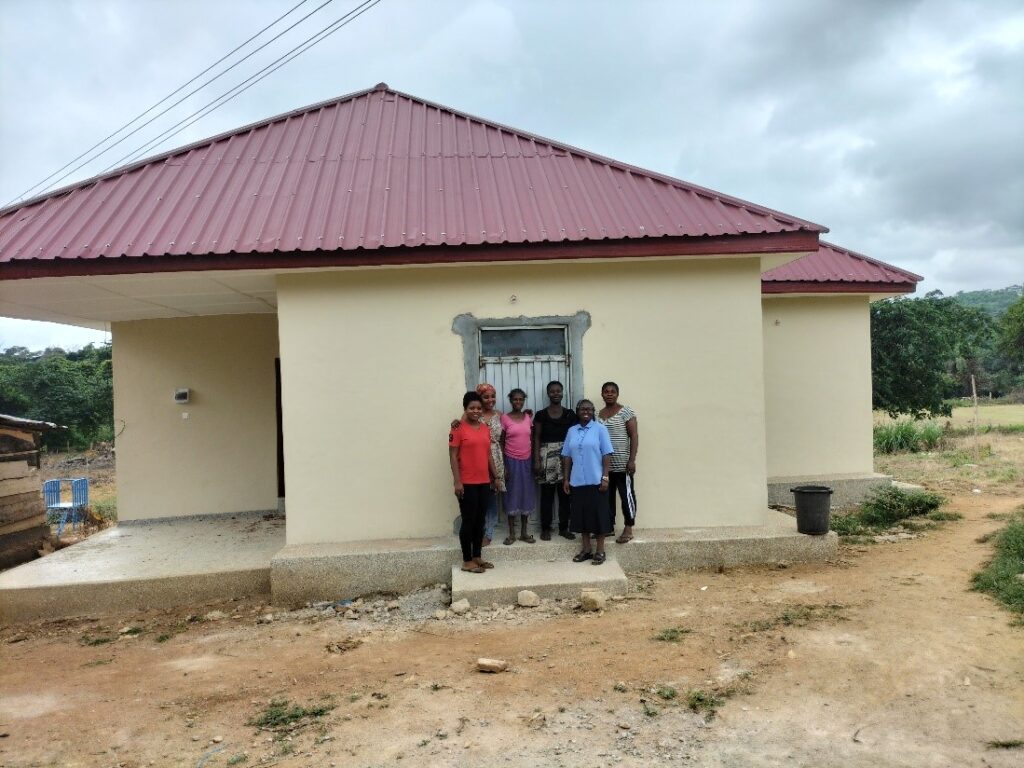
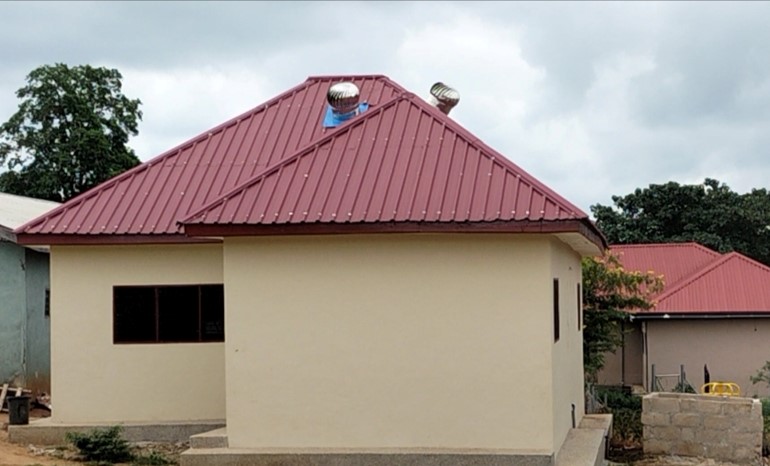
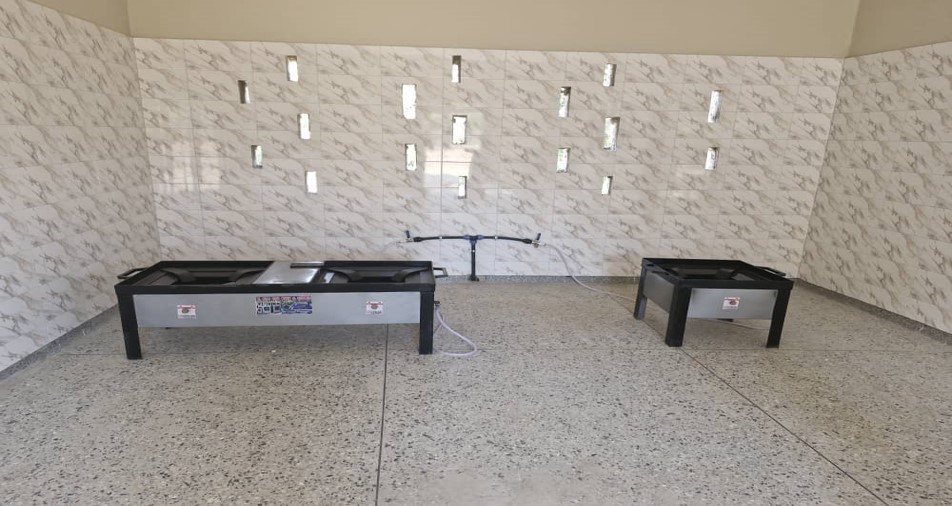
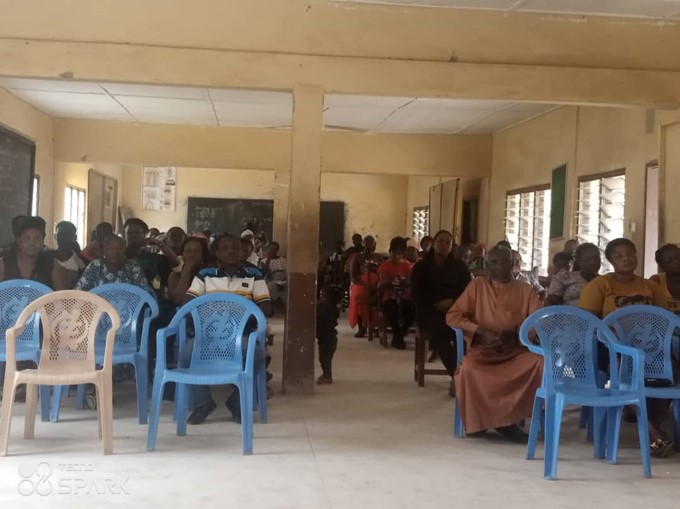
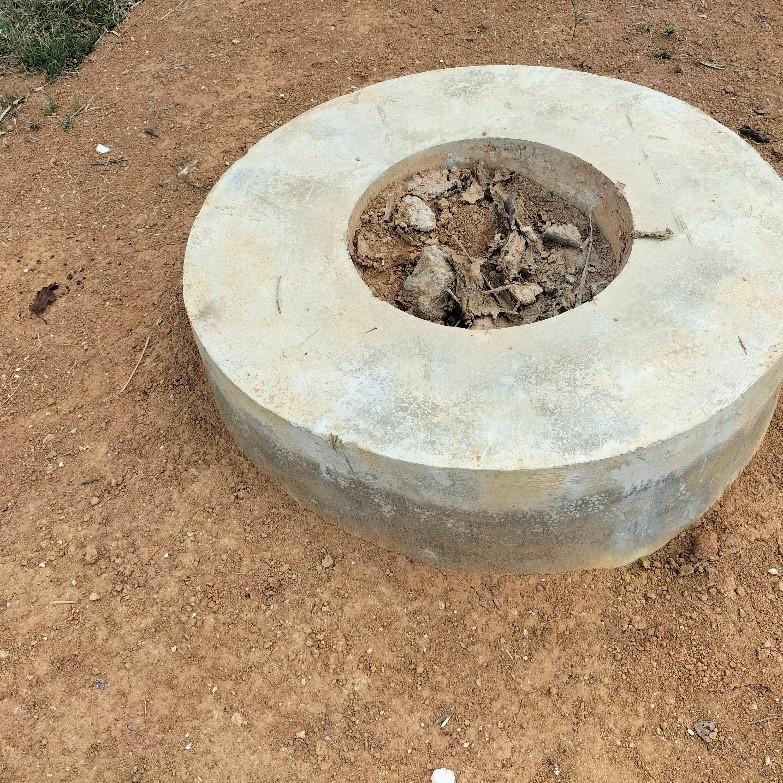

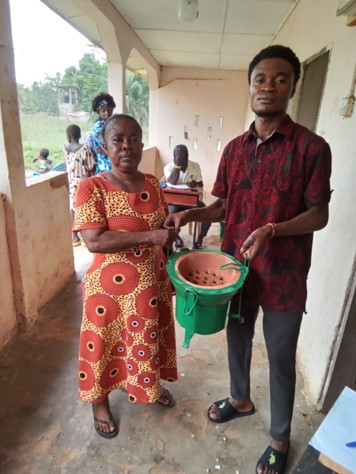
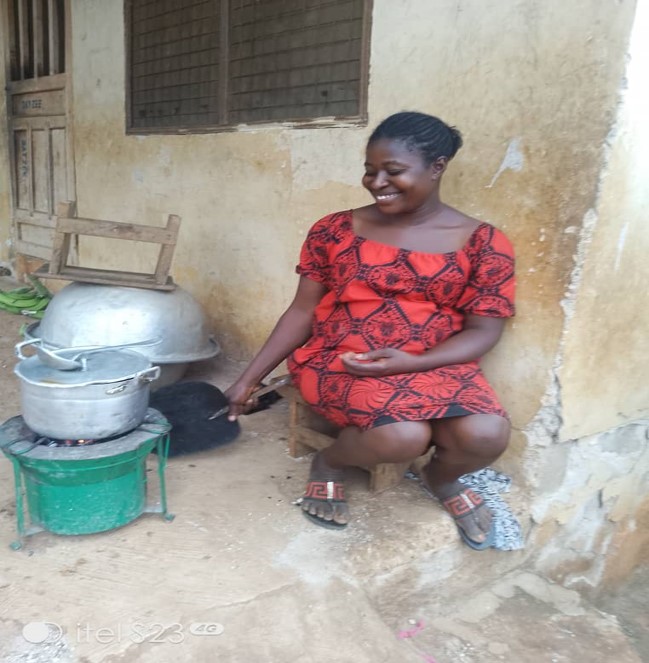
Longer-term, the project team sees a number of positive impacts from this project, including the reduced cutting down of trees; the involvement of more people in the education of the community about the impact of their own activities on climate change; increased use of technologies like energy-saving stoves for household use; the adaptation of the biogas technologies in schools by the ministry; a deeper understanding on the sanity of biogas for cooking; the use of biogas in schools that run feeding programme. As well, they hope to contribute to the reduction of deforestation and to save the species of plant, trees and animals, an agenda started by the government of Ghana.
The project further intends to use the water produced from the biogas as a source of irrigation for a vegetable farm, further contributing to the restoration of the ecosystem through the use of renewable energy.
One of the beneficiaries of the project gave testimony at a recent monitoring visit to the project. He expressed his gratitude to Misean Cara and joy for contributing to less cutting of trees because of the biogas for cooking.
‘We will stop the firewood that we usually bring to school. This will help us to preserve the environment… I would like to see this project maintained so that many more children will benefit from it and contribute to less cutting down of trees in order to preserve the environment’.
Felicia A., one of the participants of the awareness education who received a discounted energy-saving stove from the project, expressed,
‘I never knew that my use of firewood was causing harm. I now use less charcoal because the stove conserves heat, and my kitchen is now spokeless because of the less use of firewood.’
*This project of the Sisters of Saint Joseph of Cluny was submitted as a nomination for a 2024 Misean Cara Climate Action Award


